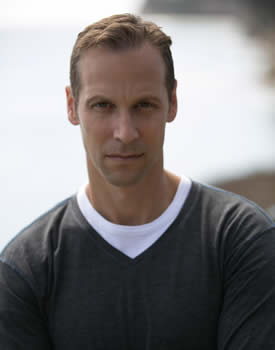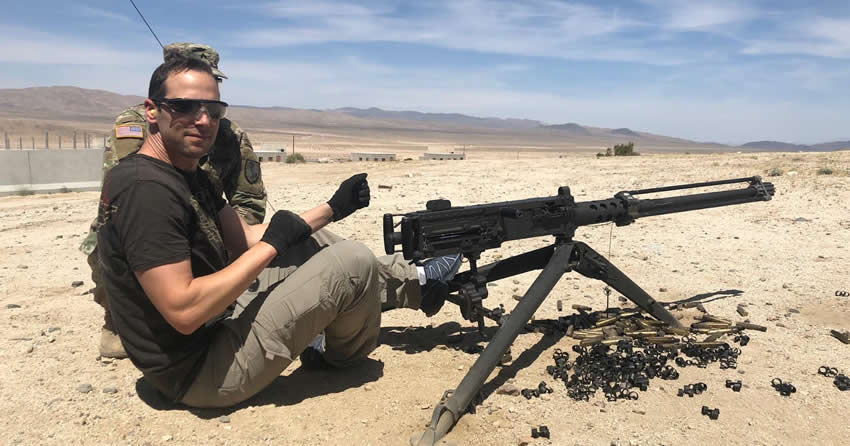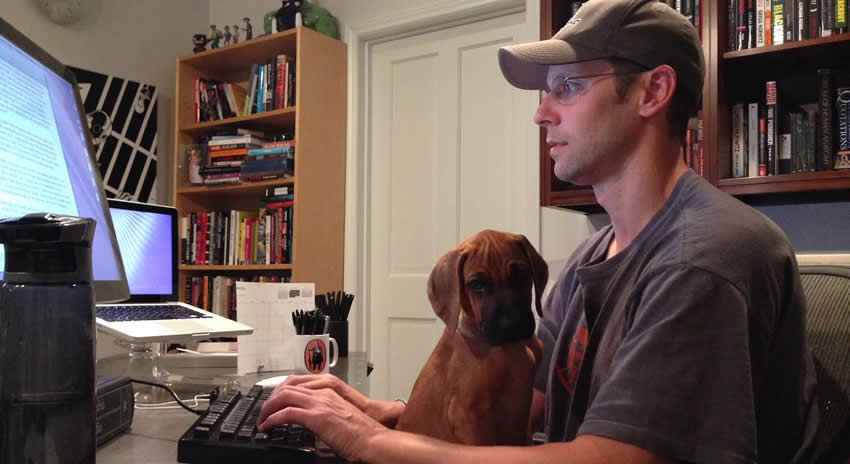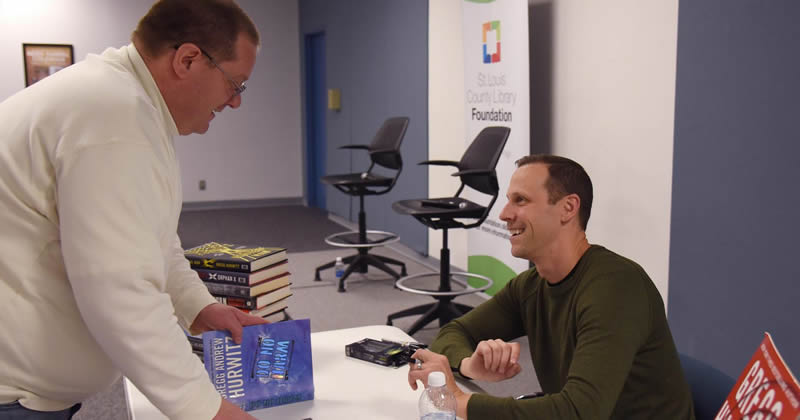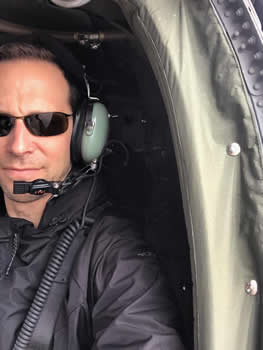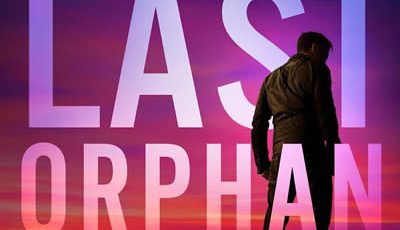

Features On the Cover: Gregg Hurwitz
What’s More Important—One’s Principles or One’s Life?
Orphan X, the notorious Nowhere Man, plunges into his eighth mission, once again in the virtuoso hands of bestselling author Gregg Hurwitz. After years on the run from the Orphan program, one small mistake lands Evan Smoak under the president’s control again. This time, to survive, he’ll have to eliminate a rich, powerful player the president finds too dangerous—but to do so, he’ll have to compromise his principles to use his skills only against those who truly deserve it. To a man like Evan, the moral dilemma is almost too much.
THE LAST ORPHAN publishes on February 14 and is available now for preorder.
Hurwitz, who says he loves bourbon, Rhodesian ridgebacks, and walks on the beach, graciously gave The Big Thrill some insights into his background, his writing, and this thrilling new installment in the Orphan X series.
You wrote your first mystery in elementary school, and you continue to be impressively prolific in novels, film, and comic books. What inspired you to write fiction, and what keeps you going?
It was the only way my mind ever worked. I thought in stories—scenarios and scenes and snippets of dialogue. I thought that was how pretty much everyone thought. I loved reading so much that I figured everyone who loved books would want to create one. Of course that’s absurd—I love so many things I couldn’t possibly create—but it was a kind of lovely self-centeredness of youth to think that everyone was as obsessed with devouring and writing stories as I was. Novels have always been my first love and have formed the spine of my career.
You are known for going beyond the surface in your research; for example, not simply finding out how law enforcement investigates a case, but learning how the professionals think and talk to each other, actually doing hands-on martial arts, etc. How do you translate this experience and knowledge into your work?
If I encounter it and experience it, I can give the reader a front-row seat to the action. That’s why I’ve done MMA sparring, shot every gun Orphan X uses, gone up in stunt airplanes, snuck onto demolition ranges with SEALs to blow up cars, witnessed a cadaver being carved up, and so much more. It prevents me from writing in tropes and from conveying information that is a regurgitation of other books I’ve read or movies or TV I’ve seen. It keeps everything fresh. If Orphan X is getting choked, rather than me writing “And then, everything went dark!” I try to evoke the claustrophobic experience based on my having experienced it. (I said I did some MMA sparring…not that I was very good at it.)
How did you come up with the Orphan concept, and how have you kept the series fresh after seven amazing bestsellers?
I have a lot of friends in the Spec Ops community who were involved in different black ops programs. I imagined a different kind of program, the Orphan Program, where unwanted kids from foster homes were trained to be expendable assets, human weapons who would not be missed if they got killed. I keep the series fresh by having a relentless focus on Evan Smoak. In every scene, every sequence, every fight, character comes first. It’s all about his evolution in learning to become more human, to leave behind the rigid Ten Assassin’s Commandments, to learn how to speak “the strange language of intimacy.” If I’m with Evan in his state of mind, challenges, and personal struggles, it lends depth to the plot and action. And that keeps it fresh for me.
What appeals to readers about a character who is a vigilante operating outside the traditional boundaries? Do we all wish we could be like him, and if so, why?
We all gravitate toward people and characters with a moral code, a code they answer to above all else. Though Evan is a vigilante, he has a strict set of rules he operates by and always acts on behalf of the desperate and unempowered. He would never, ever kill a member of the law enforcement community who was pursuing him. If ever caught, he’d take the rap because he understands that law and order are a necessity. He’s just there to fill the gaps for people who cannot help themselves.
And yes, a lot of folks wish they could be like him. In control of body and mind, bent to a higher purpose, grappling imperfectly toward a sense of wholeness.
You’re also known for your commentary on current events. What can we learn from fiction that we can’t gain from the news?
We can embody characters and perspectives different from our own without risk of real-world consequences. When we read fiction, our sense of defensiveness/protectiveness is lowered so we are more willing to walk a few miles in someone else’s shoes. And we also get to take our nervous systems out for a test run, where we encounter all sorts of dilemmas, threats, and adventures from a safe remove.
A 2016 L.A. Times interview mentioned that you are “a study in literary contradictions.” Is Evan Smoak also a man of contradictions? Is he like you? How did you create him and help him grow through the series?
Evan Smoak is, as [his father figure and handler] Jack Johns says, “a blue collar Renaissance man.” Or to use the parlance of the OSS (precursor to the CIA) when it came to their perfect recruit, they wanted a “PhD who could win a bar fight.” Evan boils everything down to the strategic and the tactical. He is immensely educated, self-taught or taught by subject matter experts provided by Jack Johns. But all of his knowledge is deployed practically. He has little care in appearing smart or clever. He has little interest in the cerebral or the abstract. In fact, that’s very much what’s at stake in THE LAST ORPHAN, when he comes up against someone who is blazingly brilliant, operates in abstractions, and has become untethered from morality and reality to some extent.
Creating Evan took a very long time—I had his character developing in the back of my mind for years while I was writing other books. I wanted to make sure I could bring a 360-degree view to him so that I could watch him grow across the books like a real person.
In each of your books, Evan has to face an impossible moral dilemma. How did you decide that, and how did you choose what he has to face in THE LAST ORPHAN?
I always knew at some point Evan’s past would catch up to him—completely. This is the book when it finally happens. And he’s developed enough, he’s three-dimensionalized himself in painstaking fashion through his pro bono missions and his relationships with Mia, Peter, and especially Joey, that he is more vulnerable. So when disaster strikes and he finds himself under the complete control of the US government again, he experiences it more deeply. And the trauma rips a part of him open that goes all the way back to childhood.
I knew he’d have to face that.
And I wanted him to square off against a protagonist like no other he’s faced. He finds that in Luke Devine.
Your secondary characters, like Joey, Naomi Templeton, Candy, and even Paddy are equally complex and fresh. Share with us how you created them. Also, please comment on the subtle humor that sometimes comes to the fore.
Every character must exist at the center of her own universe with the rest of the story spinning around her. It’s like the brilliant Stoppard play Rosencrantz and Guildenstern are Dead, which tells the entire play of Hamlet from the perspective of these two small characters. Every scene, every character is an opportunity to reach for greater depth. I don’t want anyone to feel like a walk-on character or a straw man. So I spend a lot of time thinking about the story from their perspective before they stroll into a scene.
As for humor, I have a lot of fun in making them engage somewhat irreverently with Evan. My friends tend to be sharp, witty, and funny, and shit talking abounds. I didn’t want to create a world in which everyone reveres Evan. I like that he’s surrounded by people who are better than him at one thing—Joey’s a better hacker, Tommy’s a better shot, etc. Evan must bring the totality of himself to a mission in order to complete it. He’s like Ulysses, the man of many wiles.
You work in some stunning twists. How do you come up with them?
I think about what is generic, what is expected. And then I try to NEVER DO THAT. If I’m inside a character and understand that character, he or she will react to any given situation in ways that are unique. As for the plot twists, those just come to me from God knows where. A lifetime of thinking in disasters and suspense to entertain myself when the outside world gets too slow. I was always a daydreamer that way—in geometry class or waiting for a plane to take off. I’m asking the perennial question: “What’s the most thrilling thing that could happen right now?”
You are a master of building suspense. How do you do it?
I’ll tell you… in the NEXT issue of The Big Thrill.
Nicely done. So what’s next for you?
Another big ole Orphan X adventure. And then? Another.
- The Big Thrill Recommends: SERVED COLD by James L’Etoile - July 26, 2024
- The Big Thrill Recommends: THE PARIS VENDETTA by Shan Serafin - June 27, 2024
- The Big Thrill Recommends: THE GENERAL’S GOLD by LynDee Walker and Bruce Robert Coffin - April 25, 2024


